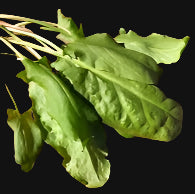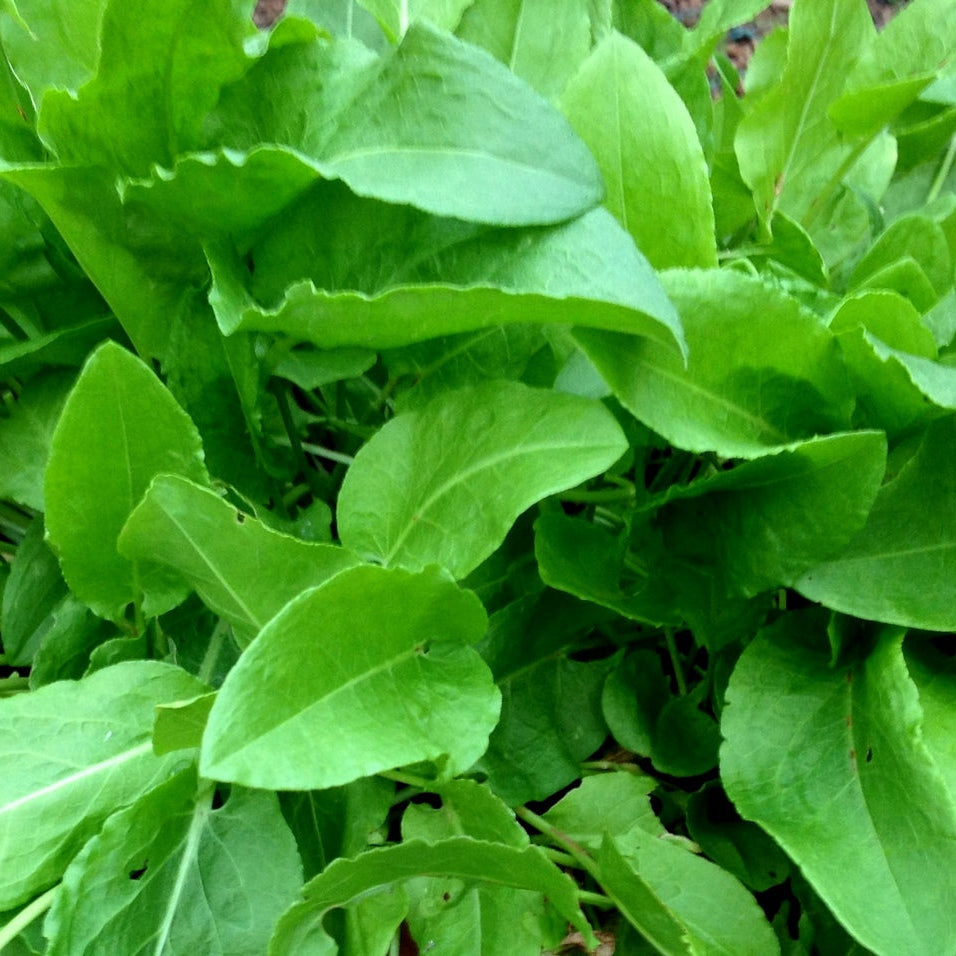
French Sorrel
French Sorrel is a flavourful, hardy perennial herb that has been cultivated for centuries as both a culinary and medicinal plant. Its tender, tangy leaves have a distinct lemony taste, making it an excellent addition to salads, soups, sauces, and fish dishes.
This low-maintenance plant thrives in a variety of soils, and its deep roots allow it to withstand drier conditions better than many other leafy greens. To ensure a steady supply of young, tender leaves, regularly cut back flower stalks before they mature.
Where Can You Grow French Sorrel?
French Sorrel thrives in Zones 4-9, preferring full sun to partial shade and well-drained soil. It is well-suited for herb gardens, perennial vegetable beds, and container growing.
History and Historical Uses
Native to Europe, French Sorrel has been cultivated for centuries as a staple ingredient in French and Mediterranean cuisine. It was traditionally used to enhance digestion and add a bright, citrusy flavour to dishes. Today, it remains a popular culinary herb, valued for its versatility and robust nature.
Canadian Zone Information
Zones 8-9: Direct sow in autumn or early spring for early establishment.
Zones 5-7: Start seeds indoors in late winter or direct sow in spring after the last frost.
Zones 4: Direct sow in spring, or mulch plants for winter protection.

How to Grow and Harvest French Sorrel
- Planting: Sow seeds 3mm (1/8in) deep, spacing plants 30-45cm (12-18in) apart.
- Watering: Keep soil moderately moist, but avoid waterlogging.
-
Harvesting:
- Pick young leaves for fresh eating, cutting back flowering stems to prolong leaf production.
- Older leaves can be cooked for soups and sauces.
- Maintenance: Trim back flowering stalks to encourage new leaf growth.
Seed Saving Tips for Future Supply
- Allow to Flower and Seed: Let some plants go to full maturity for seed production.
- Harvest Seeds: Once flower heads dry and turn brown, collect seeds before dispersal.
- Dry and Clean: Separate seeds from husks and allow them to fully dry.
- Store: Keep seeds in an airtight container in a cool, dark place. Properly stored seeds remain viable for up to 3 years.
Certified Organic By
Islands Organics Producers Association (Cert#1962)
